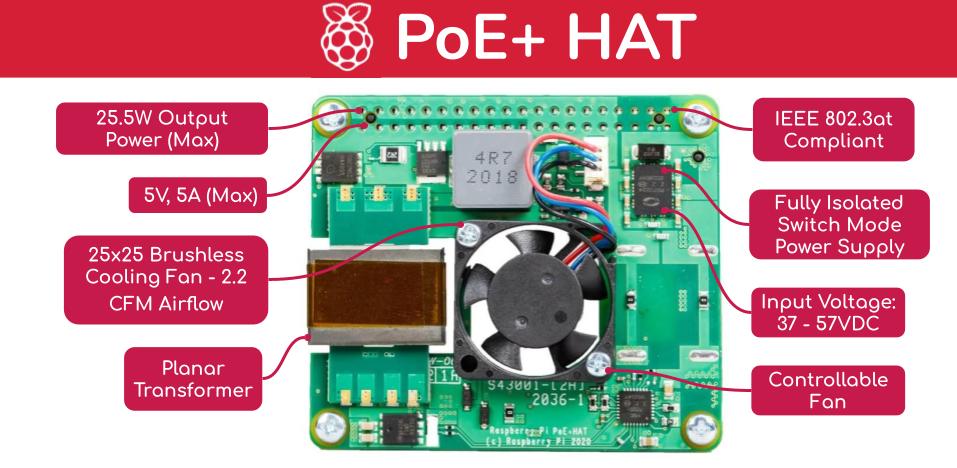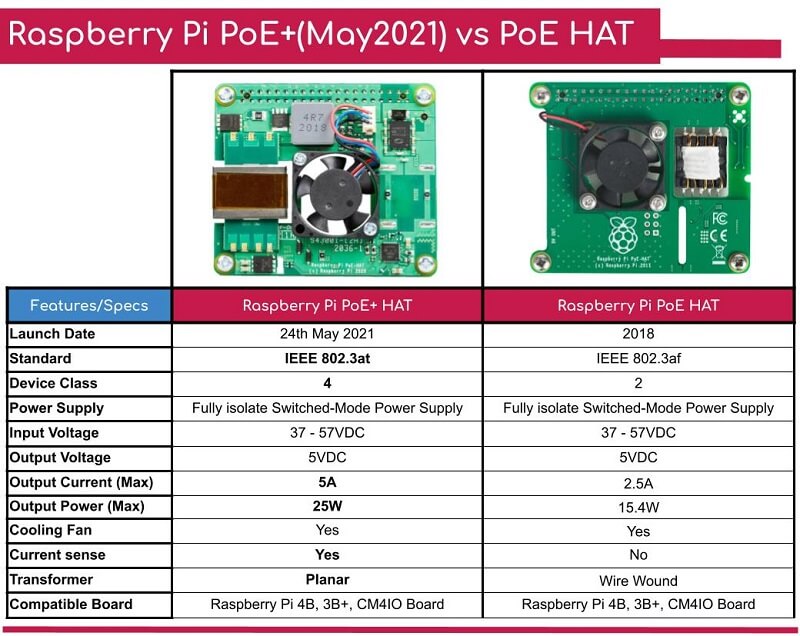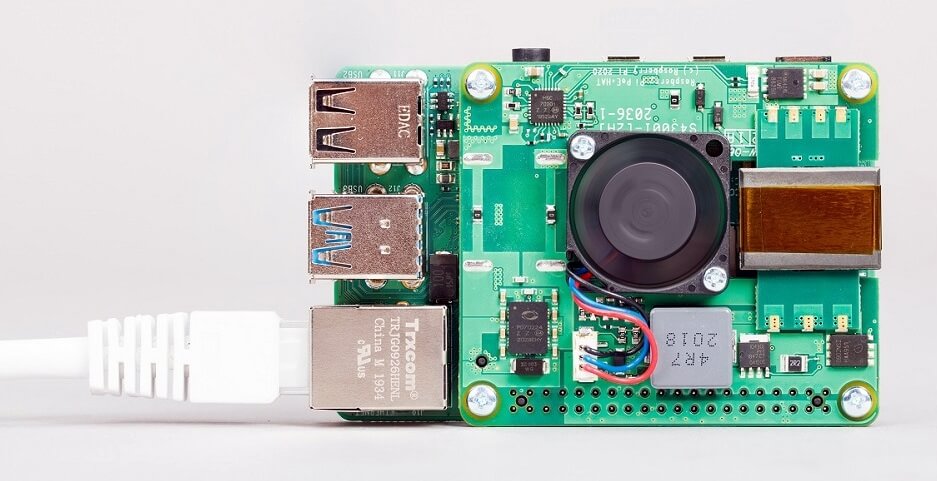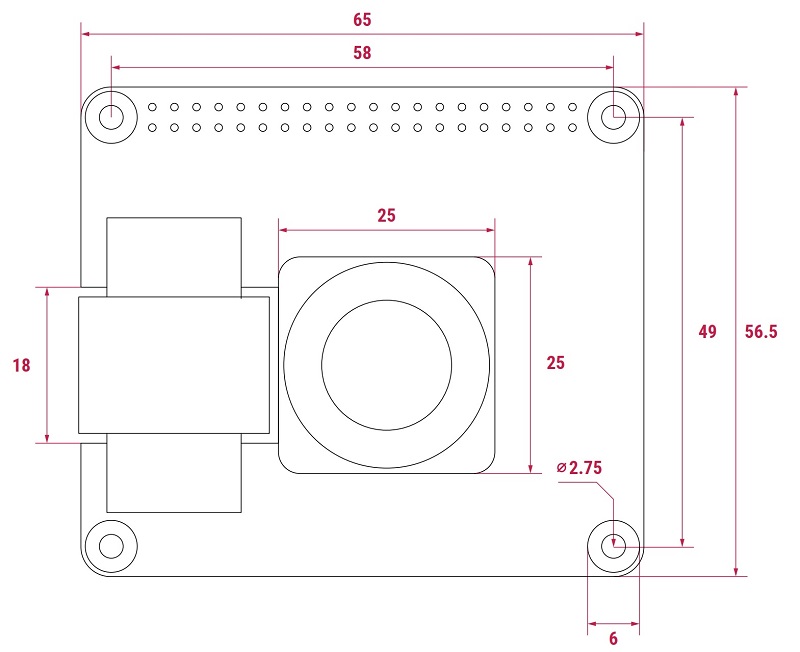Your shopping cart is empty!
5V 5A Power over Ethernet Plus (PoE+) HAT for Raspberry Pi
- Brands Raspberry Pi Code: HAT-POEP
Note: This is the latest revision of the official Power over Ethernet (PoE) HAT, the PoE+(Plus) HAT, launched on 24th May 2021.

The enhanced version of the official Power over Ethernet (PoE) HAT for Raspberry Pi 4 Model B, Raspberry Pi 3B+, and the Compute Module 4 IO board too. It is now IEEE802.3at compliant and able to deliver up to 25.5W of power to the Raspberry Pi computer!
PoE is to deliver power to a device through the Ethernet cable only without the need to route an additional AC line, power socket, or power adapter. PoE has been widely used for Security IP cameras, RFID readers, WiFi Access Points, Network Attached Storage, Point of Sales, etc. Now, imagine it, you can power the Raspberry Pi computer just by using a PoE compliance router, network switch, or adapter, and the Ethernet cable, super neat. As you might have known, the power pins on the RJ45 socket (Ethernet) are being extended out to header pins on Raspberry Pi 4 Model B and 3B+. But due to the board size, compatibility and cost, the PoE module is not built on the mainboard. Thus, this HAT is necessary to tab the power from the additional PoE power header pins and convert it to stable power for the Raspberry Pi.

It is a fully isolated Switched-Mode Power Supply (SMPS) that supports the PoE power input range of 37 to 57VDC and converts it into 5V, 5A to the Raspberry Pi Computer. On top of that, there is a brushless fan pointing at the processor which is controllable via I2C (40-pin GPIO). How awesome is that!

This PoE+ HAT is compatible with:

You will need:
Connecting your PoE+ HAT to the Raspberry Pi
Disconnecting your PoE HAT
Additional information
No modification to the main Raspberry Pi board is needed for this product to work. Please ensure that your Raspberry Pi software is up to date for all functionality to be available. The PoE+ HAT is fitted with a small fan that is controlled by the Raspberry Pi via I2C. The fan will turn on and off automatically depending on the temperature of the main processor on the Raspberry Pi.
